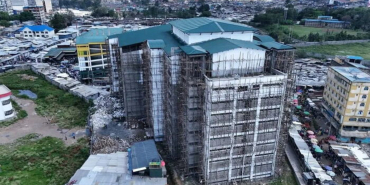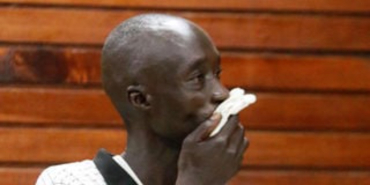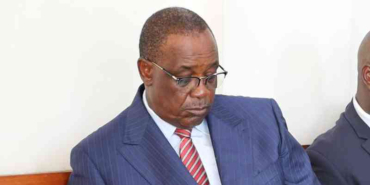Kenyan Mother Left Behind in Fight for British Soldier Child Support

A recent UK court order demands the release of contact details for eleven British soldiers suspected of fathering children with Kenyan women.
The ruling, hailed as a potential breakthrough for families seeking recognition and child support, has also highlighted the limitations of current legal frameworks, leaving some women, like Doris Njoki, excluded from its protective scope. Njoki’s story, set against the backdrop of Nanyuki's Majengo Estate, is emblematic of a broader pattern of abandonment following fleeting military deployments.
In September 2002, then 19 years old, she met a soldier, who introduced himself as Steve, at a popular entertainment venue frequented by British troops stationed under the British Army Training Unit in Kenya (BATUK). The relationship quickly progressed, with Steve promising marriage. However, Njoki later discovered that Steve was French, not British. Before she could process this revelation, he had left the country with his unit, leaving her pregnant and without any means of contacting him.
Now in his early twenties, Njoki’s son completed secondary education in 2022 but has been unable to pursue further studies due to financial constraints. He currently works casual labour in Nairobi, his aspiration to attend medical training college thwarted by poverty. The UK court’s decision, while a significant development, does not extend to Njoki’s case, as the father of her child was French, not a UK citizen.
"My name was not included in the suit," she explains. "My colleagues told me I did not qualify since the father of my child was French."
This exclusion has left her feeling disillusioned, particularly as she witnesses other women in similar situations begin to receive long-awaited support. The British High Commission acknowledges the court’s decision but declined to comment further, citing ongoing litigation.
"While paternity claims against UK Service Personnel are a private life issue, the government cooperates with local child support authorities where there are claims relating to paternity," a representative stated.
Legal experts involved in the case argue that the soldiers’ actions reflect a worrying trend of impunity. Rob George KC, representing the children, emphasises that DNA evidence confirms the men were not Kenyan, and foreign soldiers were the only non-Black men present in the area at the relevant time.
James Netto, a solicitor for the children, adds that "for too long, men in the British Army have acted with outrageous, brazen impunity buoyed by the huge power imbalance in their favour and the belief that their actions abroad carry no consequences once they return home."
Kenyan legal advocates have also voiced their concerns. Kepher Ojijo, who contributed to the Kenya National Commission on Human Rights (KNCHR) advisory report to Parliament on BATUK, explains that the eleven children named in the suit were able to provide material evidence linking them to the alleged fathers. This evidence included photos, physical features, and other identifiers that could be used to trace the soldiers through military records.
Ojijo also expresses concern that many other children are excluded simply because they lack such documentation, despite facing similar hardships. Despite being born to a foreign soldier, Njoki's son remains outside the protection offered by the UK court ruling. This lack of formal recognition has not only denied him potential citizenship but also financial assistance.








Add new comment